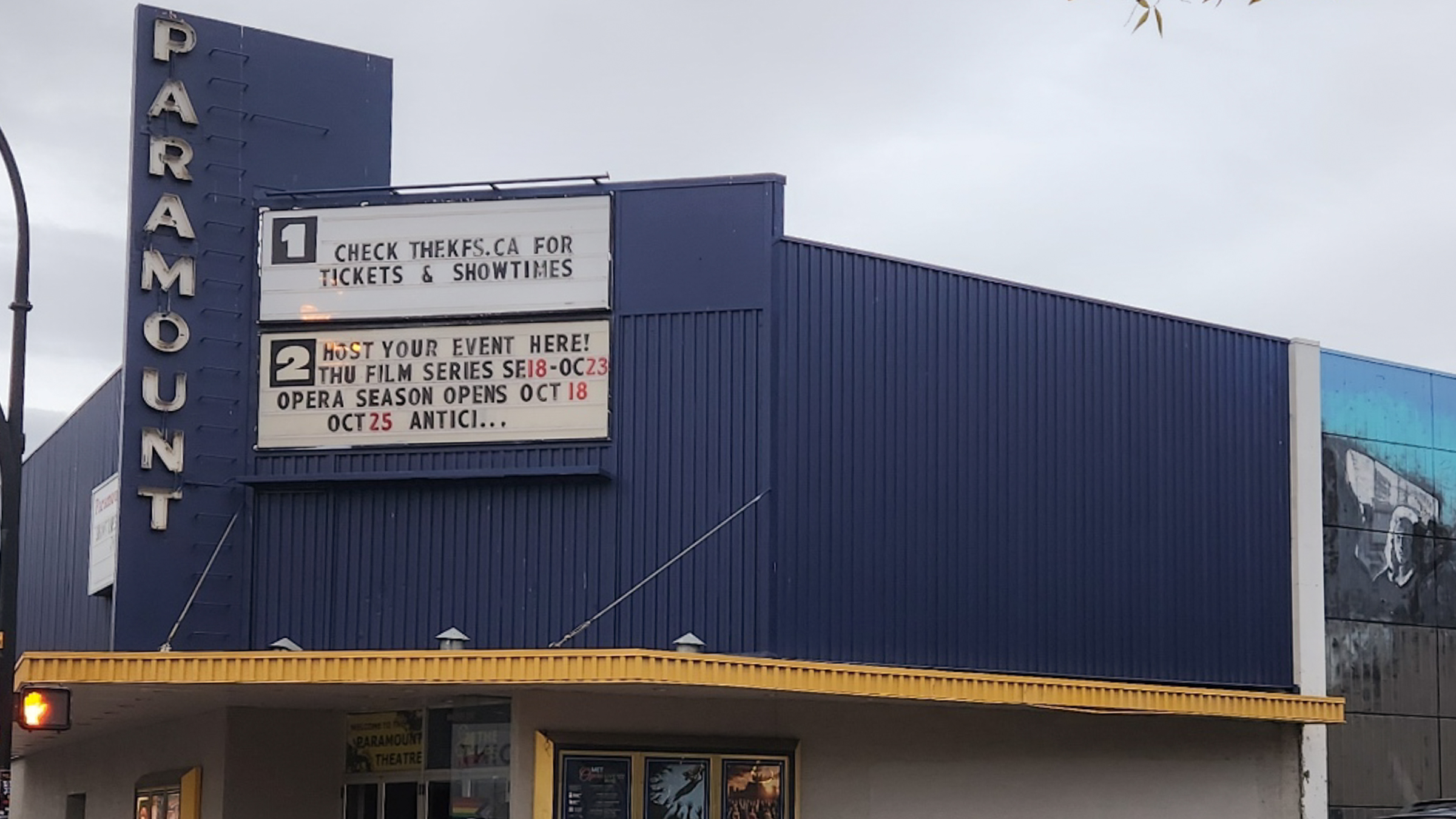The profession of an actor requires the skill of mimicry to convince their audience that their character on screen is brought to life. Through the use of improvisation, pulling heartstrings, and on-point directing, it can be hard to separate what is reality and what is fabricated. So, what is the real picture? How can we see the truth, and how do we correlate the celebrated public heroes with the communal heroes of Kamloops? The Capes of Kamloops Podcast aims to bridge the gap.
Until the end of November, the duo behind the Kamloops podcast is taking to the stages of the Paramount Theatre to host free screenings of blockbuster hits like Backdraft (1991), Mr. Hollands Opus (1995), Patch Adams (1998), Super Troopers (1998), and many others, in hopes of bringing a sense of community together through the works of the big screen. But what is the common denominator between these films, and why were they chosen?
According to film director and podcaster Kyle Robertson and his childhood friend and film critic Zach Milne, the common thread is that all these films feature characters portrayed as regular people who become community heroes. The pair reminds us that these seemingly normal characters are what make the stories so compelling, and the heroism isn’t reserved for the extraordinary. Audiences are drawn to these portrayals because, although they blur the line between fiction and reality, they speak to our yearning for hope and decency in a world that doesn’t always feel hopeful or decent. Seeing that heroism could live in people as ordinary as your music teacher, bus driver, or even your friendly neighbourhood photo-journalist can be an inspiring thing.
The backbone of every community is those who serve it: law enforcement professionals, firefighters, nurses, doctors, lawyers, and teachers, just to name a few. On the big screen, these individuals are larger than life, purposely embellished and blown so out of proportion that audiences can’t help but acknowledge them. Yet behind the dramatization lies a more truthful picture, one without scripts or stagelighting. In the real world, it’s easy to take for granted the contributions these professionals add to our communities.
Service workers face long hours, emotional strain, and sometimes physical hardships, all with a quiet perseverance. Film lets us glimpse into their world, but the real stories are far more raw and unfiltered.
For Robertson and Milne, the films they chose were purposeful, a means to call attention to the real-life heroes in our communities by drawing parallels to the fictional heroes we see on the big screen. The process, according to the duo, is straightforward. First, audiences are treated to a showing of a popular Hollywood film, after which the duo interviews an individual from the community whose profession was portrayed on screen.
“What we’re doing is we’re taking someone who works in a local hero profession, and we’re getting them to sit down with us to talk about a movie that’s about their job. Then we go through with how accurate it is to real life, and what is fake Hollywood garbage,” Robertson said.
The project not only connects film with real-world experiences but also offers audiences a behind-the-scenes look at professions that are often dramatized on screen. By grounding Hollywood storytelling in genuine local experiences, the hosts aim to bridge entertainment and authenticity. However, turning that concept into reality requires more than just a creative vision; it means coordinating with people whose jobs rarely allow for predictable hours.
With the busy agenda of a public servant, scheduling errors were due to rise.
“The people we’re interviewing are not just working careers, but are working for the community, and those positions are in high demand. Fire Captain Erin [Bruzesse], whom we were interviewing, was called out for duty, even though she was off shift that day and didn’t have to go out. It can be quite a headache working with unpredictable schedules. Thankfully, everyone has been so helpful working around it,” Robertson said.
Each interview becomes more than a recording; it’s a moment of connection, showing the human side of the uniforms that often go unnoticed in daily life. Despite the unpredictable nature of these interviews, the team remains committed to capturing authentic stories from those who serve.
So far, five movies have been screened in conjunction with the podcasts, including Backdraft (1991), Mr. Holland’s Opus (1995), Patch Adams (1998), Super Troopers (2001), and most recently, Boiling Point (2021). The showings have been successful, with the duo being surprised by how full the theatres became. Along with every screening, donations benefiting the specific department or profession highlighted are also being collected.
To view a complete list of past and upcoming films in the series, click here.

